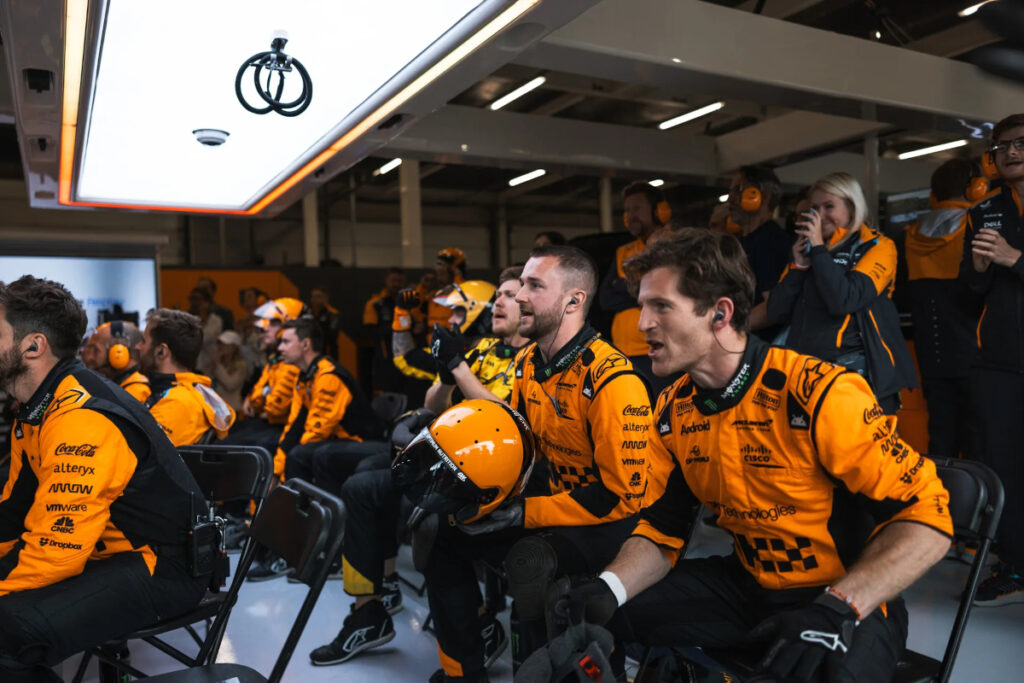In the high-octane world of motorsport, where adrenaline-fueled excitement meets intense competition, the pressure to perform can be overwhelming. Athletes, team members, and support staff often find themselves racing against time—not just on the track but also in managing their mental health. The relentless pursuit of victory, coupled with the physical and emotional demands of the sport, can lead to severe burnout if left unchecked. This blog post delves into the vital topic of mental health in motorsport, offering practical strategies to navigate the fast lane without losing sight of personal well-being. From recognizing the signs of burnout to implementing effective coping mechanisms and fostering a supportive team environment, we’ll explore how individuals in this exhilarating field can maintain their mental resilience and thrive both on and off the track. Buckle up as we embark on a journey to prioritize mental health in the thrilling world of motorsport!
1. Understanding Burnout in Motorsport
Understanding burnout in motorsport is crucial for both athletes and support teams, as the demands of this high-octane environment can easily lead to physical and mental exhaustion. Burnout is often characterized by a state of chronic stress, where individuals feel overwhelmed, emotionally drained, and unable to meet the constant demands of their racing careers. In the motorsport arena, where the stakes are incredibly high and the pressure to perform can be relentless, signs of burnout can manifest in various ways, including decreased performance, irritability, fatigue, and a loss of passion for the sport.
Motorsport professionals often face unique stressors, such as rigorous training schedules, travel commitments, and the constant scrutiny of fans and sponsors. These factors can contribute to a feeling of isolation, as the focus often remains on achieving results rather than addressing individual mental health needs. Understanding the symptoms of burnout is the first step toward prevention, allowing athletes to recognize when they are pushing themselves too hard. This awareness is essential in a culture that often celebrates endurance and grit over well-being.
Moreover, it is important to acknowledge that burnout is not a sign of weakness but rather a natural response to prolonged stress. By fostering a supportive environment where mental health is prioritized, teams can not only enhance individual performance but also cultivate a culture of resilience. Recognizing the signs of burnout early and implementing strategies to manage stress can make a significant difference, enabling motorsport professionals to continue thriving in a sport that demands both physical prowess and mental fortitude.
2. Recognizing the Signs of Mental Health Struggles
Recognizing the signs of mental health struggles in the high-octane world of motorsport is crucial for both athletes and their support teams. The pressure to perform at peak levels, combined with the physical and emotional toll of the sport, can often lead to feelings of anxiety, depression, or burnout. One of the first indicators to watch for is a noticeable change in mood or behavior. An athlete who was once enthusiastic about racing may become withdrawn, irritable, or exhibit a lack of motivation.
Physical symptoms can also manifest as fatigue, insomnia, or changes in appetite, which should not be ignored. These signs can be subtle yet telling, often creeping in when the stress of competition reaches a boiling point. Additionally, a decline in performance, whether through increased mistakes during races or a lack of focus during practice sessions, can be a red flag that mental health is being compromised.
Effective communication within teams is essential; encouraging open conversations about mental well-being can help identify struggles before they escalate. It’s also important to foster an environment where athletes feel safe discussing their emotions and seeking help. By being vigilant and proactive, motorsport professionals can create a supportive culture that acknowledges mental health as a priority, paving the way for healthier, more resilient racers.
3. Effective Coping Strategies for Athletes and Teams
In the high-octane world of motorsport, the pressures on athletes and teams can be immense, often leading to mental health challenges and burnout. However, there are effective coping strategies that can help in managing these stresses and maintaining a healthy mindset.
First and foremost, open communication within the team is crucial. Encouraging athletes to share their feelings and experiences creates a supportive environment where stressors can be addressed collectively. Regular team meetings to discuss not only performance but also mental well-being can foster a culture of trust and understanding.
Incorporating mindfulness practices into training routines can also be beneficial. Techniques such as meditation and deep-breathing exercises can help athletes stay grounded during high-pressure situations. Setting aside time for these practices, even in the midst of a busy race schedule, can lead to improved focus and reduced anxiety.
Additionally, fostering a balanced lifestyle is essential. Encouraging athletes to take breaks, engage in hobbies outside of motorsport, and prioritize physical health through proper nutrition and sleep can combat burnout. Time away from the track allows for mental rejuvenation, providing athletes with the energy needed to maintain their passion for the sport.
Lastly, implementing professional support systems, such as sports psychologists or mental coaches, can offer tailored strategies to address individual needs. These professionals can provide athletes with tools to navigate the emotional rollercoaster of competition and help teams develop resilience against burnout.
By actively integrating these coping strategies, athletes and teams can navigate the fast lane of motorsport with a more balanced approach, ultimately leading to enhanced performance and well-being.
4. Creating a Supportive Team Environment
In the high-octane world of motorsport, where adrenaline fuels the passion and the pressure is relentless, creating a supportive team environment is crucial for managing mental health and preventing burnout. This environment is not just about fostering camaraderie; it’s about cultivating a culture where open communication, empathy, and understanding thrive. Team leaders and members alike must prioritize mental well-being as much as they do technical performance.
Start by encouraging an atmosphere where team members feel comfortable expressing their thoughts and emotions. Regular check-ins can be hugely beneficial—these can take the form of informal gatherings or structured meetings designed to address not only on-track performance but also individual mental health. By normalizing discussions about stressors and challenges, you can help de-stigmatize mental health issues within the team.
In addition to open communication, consider implementing peer support systems. Pairing team members for buddy checks can create a network of support, ensuring that everyone has someone to turn to during tough times. This system not only bolsters individual resilience but also fosters deeper connections among team members, contributing to a stronger collective spirit.
Moreover, recognizing and celebrating each other’s achievements—big or small—can significantly boost morale. Acknowledgment fosters a sense of belonging and purpose within the team. When members feel valued not just for their performance, but for their contributions to the team dynamic, it can enhance motivation and reduce the feelings of isolation that often accompany high-pressure environments.
Lastly, be proactive in recognizing the signs of burnout. Encourage team members to take regular breaks, engage in physical activity, and participate in team-building exercises that are not solely focused on racing. Whether it’s a casual outing or a wellness workshop, these activities can serve to recharge mental batteries and reinforce the idea that everyone is in this together.
By creating a supportive team environment, motorsport teams can not only enhance performance on the track but also ensure the mental well-being of every member, promoting a more sustainable approach to the thrilling yet demanding world of motorsport.
Keep following Mclaren Parts Direct Blog for news and updates about McLaren Super Cars, F1 and where to buy the McLaren Parts






